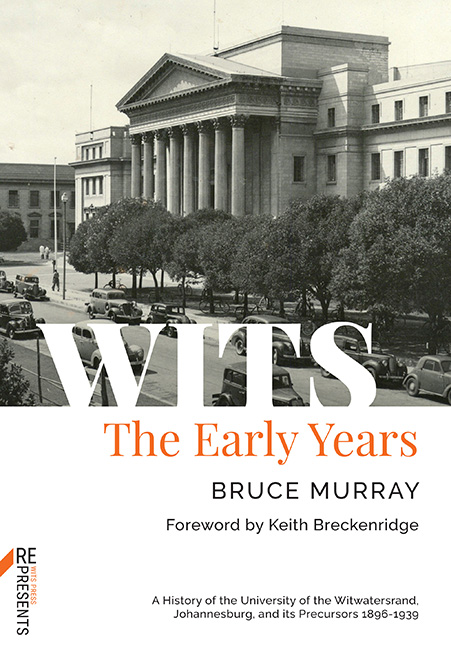7 - Depression and Recovery
Published online by Cambridge University Press: 24 November 2023
Summary
In January 1928 Humphrey Rivaz Raikes became the University’s third Principal, an office he was to retain for 26 years, finally retiring because of ill health in February 1954. No other Principal of the University has served for more than one decade, let alone two. Under him the University grew very considerably. On his arrival as Principal, the University possessed 1 476 students; when he departed student enrolment had reached 4 277. His style of leadership was generally relaxed and humane, rather than assertive and dynamic.
Raikes’s first decade as Principal was undoubtedly his most difficult. His initial appointment had been hotly contested by Senate, which would have preferred Hoernlé for the post. Council waited for a long time before giving him their full confidence, only confirming Raikes as Principal in July 1932. Soon after he assumed office the great depression disrupted the South African economy, forcing the government to make major cuts in its grants to universities. Politically, he had an awkward initial passage with Hertzog’s Nationalist government, formed after the general election of 1929. It was only after Fusion in 1933 that he began to negotiate more confidently with government.
Although hostility among the academic staff to Raikes’s appointment as Principal soon evaporated, it took a considerable time for him to establish his true stature within the University. General admiration for him as a man and as a leader dates from his efforts at the close of World War II to ensure that Wits would provide ample opportunities and facilities for returning soldiers. Before the war, though generally regarded as kindly and well-meaning, he was seen as lacking drive and initiative, and as rather ineffectual when dealing with the more assertive members of the academic staff.
According to the University’s folklore, Raikes’s initial appointment as Principal was in the nature of an accident. In 1927 the University Council set up an overseas committee, which included Philip Kerr and Lionel Curtis, both former members of the Milner Kindergarten, and William Cullen. Their task was to find suitable candidates for the principalship. The story is told that the committee visited Exeter College, Oxford, to interview a favoured candidate, but found that he was away at the time.
- Type
- Chapter
- Information
- WITSThe Early Years, pp. 199 - 233Publisher: Wits University PressPrint publication year: 2022



